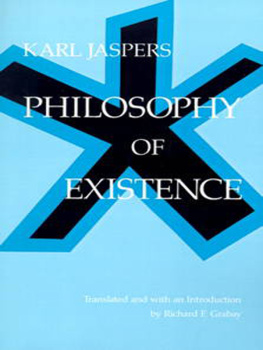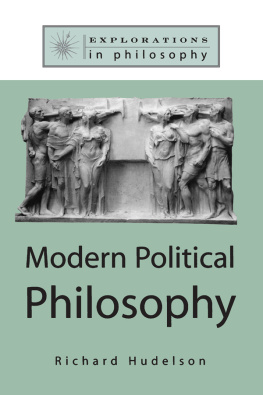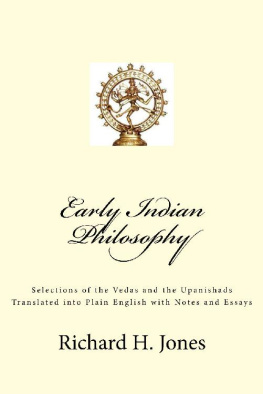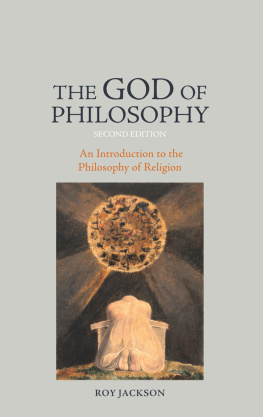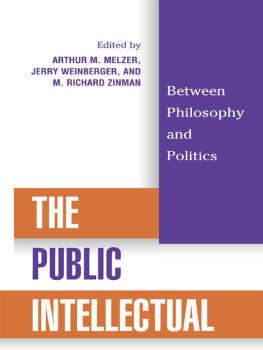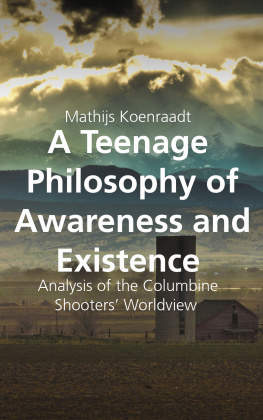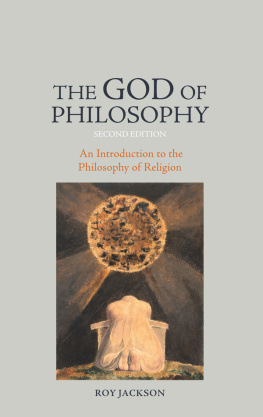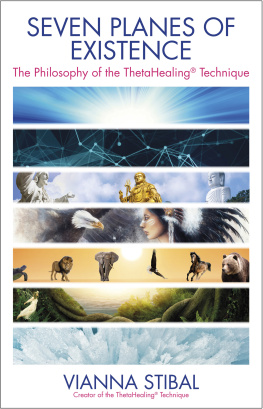Grabau Richard F. - Philosophy of Existence
Here you can read online Grabau Richard F. - Philosophy of Existence full text of the book (entire story) in english for free. Download pdf and epub, get meaning, cover and reviews about this ebook. City: Philadelphia, year: 1971, publisher: University of Pennsylvania Press, genre: Religion. Description of the work, (preface) as well as reviews are available. Best literature library LitArk.com created for fans of good reading and offers a wide selection of genres:
Romance novel
Science fiction
Adventure
Detective
Science
History
Home and family
Prose
Art
Politics
Computer
Non-fiction
Religion
Business
Children
Humor
Choose a favorite category and find really read worthwhile books. Enjoy immersion in the world of imagination, feel the emotions of the characters or learn something new for yourself, make an fascinating discovery.
- Book:Philosophy of Existence
- Author:
- Publisher:University of Pennsylvania Press
- Genre:
- Year:1971
- City:Philadelphia
- Rating:5 / 5
- Favourites:Add to favourites
- Your mark:
- 100
- 1
- 2
- 3
- 4
- 5
Philosophy of Existence: summary, description and annotation
We offer to read an annotation, description, summary or preface (depends on what the author of the book "Philosophy of Existence" wrote himself). If you haven't found the necessary information about the book — write in the comments, we will try to find it.
Philosophy of Existence — read online for free the complete book (whole text) full work
Below is the text of the book, divided by pages. System saving the place of the last page read, allows you to conveniently read the book "Philosophy of Existence" online for free, without having to search again every time where you left off. Put a bookmark, and you can go to the page where you finished reading at any time.
Font size:
Interval:
Bookmark:

Works in Continental Philosophy
GENERAL EDITOR JOHN R. SILBER
 Karl Jaspers
Karl Jaspers
PHILOSOPHY
OF
EXISTENCE
Translated and with an Introduction
by Richard F. Grabau
PHILADELPHIA
University of Pennsylvania Press
Originally published by Walter de Gruyter & Co., Berlin, under the title Existenzphilosophie, Third Edition copyright by Walter de Gruyter & Co.
Copyright 1971 in the English translation by the Trustees of the University of Pennsylvania. English translation by Richard F. Grabau.
Library of Congress Catalog Card Number: 79-133203
ISBN: 0-8122-7629-9 (Cloth)
ISBN: 0-8122-1010-7 (Paper)
Seventh printing, 1995
MANUFACTURED IN THE UNITED STATES OF AMERICA
Editor's Note
Philosophy of Existence by Karl Jaspers was first presented to the public thirty years ago as a series of lectures invited by The German Academy of Frankfurt. In preparing these lectures Jaspers, whom the Nazis had already dismissed from his professorship at Heidelberg, knew he was speaking in Germany for the last timeunless and until National Socialism were annihilated. Resisting temptations to easy and ineffectual martyrdom and silence, Jaspers used the occasion to offer an account of the cultural and intellectual situation from which existentialism emerged as well as a summary of his own philosophy. In this total threat, Jaspers writes, I tried to pay homage to reason, to be bound to the sciences, to become aware of what was essential, and to think in the ground of all being. In so doing Jaspers prepared lectures that spoke directly and tellingly to his hearers. And because he did not allow the historical events of 1937 to determine the contents of his lectures, they also speak with undiminished directness and force to us.
Philosophy of Existence serves three purposes today; it brings the many strands of the existential movement into focus; it provides an excellent overview of Jaspers'own philosophical position, which is becoming increasingly available to English and American readers as more of his books are translated; and it demonstrates by example that philosophy need not be irrational, anti-scientific, journalistic, or homiletic in order to be existential and engag.
In this short book Jaspers, one of our leading existentialist philosophers, provides a much needed corrective for the popular view of existentialism as a pessimistic, irrationalist philosophy. Jaspers maintains that it is, rather, part of the mainstream of Western philosophythe form that philosophy has taken in our day. Since Socrates proclaimed the virtue of the examined life, the task of philosophy has been to give a reflective account of human existence, to clarify and illuminate human life. It has done this both by critical inquiries into many areas of human experience, and by constructing ontological accounts of reality. In the former effort philosophy has developed such specialties as logic, ethics, epistemology, philosophies of religion, science, mind, value, art, and so forth. In the latter it has attempted to draw its results into a vision of the totality of being. Jaspers continues this two-fold philosophical task by rational and critical methods. He insists that philosophy cannot be irrational since its only tool is reason and that it cannot be the expression of a merely subjective and particular viewpoint since it must be intelligible and communicable to others.
But philosophy must be concerned with man in his concrete physical, historical, social, and personal situation. It cannot or should not reduce human existence to one or even several of its dimensions. Jaspers argues that in the nineteenth and twentieth centuries this is precisely what philosophy has done: it has departed from its vital aim and tried to imitate rather than clarify or explain the sciences. It has theorized about man as though he were an object in the world like other things, an object to be understood by the same kind of detached and objective investigation. Existentialism is a reaction against pseudoscientific philosophizing, and the term existential (Existenz) focuses this reaction by calling our attention to the concrete human situation from which philosophical thought arises.
The two philosophers from whom Jaspers has learned the most are Kierkegaard and Kant. From the former comes Jaspers'sensitivity to man's concreteness and individuality. From the latter comes Jaspers'respect for science, his method, and his view of reason as the principle of both criticism and unity. These influences are woven by Jaspers into an account of science, religion, metaphysics, knowledge and truthan account which tries to do justice to the concreteness, individuality, and finitude of human existence. The result is a philosophy that is critical and rational while also open to the possibilities, inscrutabilities, and freedom of human life.
Philosophy of Existence, I believe, is the finest introduction to Jaspers' own comprehensive philosophy and to existentialism as a philosophical movement.
JOHN R. SILBER
Austin, Texas
August, 1970
Preface
IN THIS LITTLE BOOK Karl Jaspers provides one of the best short statements of both the main features of his own philosophy and his ideas about the nature and importance of philosophical thought in human life. Since he had just been dismissed from his university position by the Nazis, the lectures of 1937 which gave rise to this volume were his last opportunity for public statement for several years. They were delivered six years after the appearance of his Philosophie. Although his gigantic Von der Wahrheit (On Truth) was not to be published for ten years (and is still not available in English), most of it was already written and the content of the present book was taken from it. As a result, these three lectures by Jaspers contain all his major ideas: the encompassing, existential truth, exception and authority, transcendence and transcending thought, reason, metaphysics and cipher language, and the relation between philosophy and its two closest styles of thought which are science and religion.
According to Jaspers, existential philosophy is neither new nor radically different from what usually goes by the name of philosophy. Straight off in the introductory lecture he insists that it is an integral part of what he calls the one, primordial philosophy. The only thing new about it is that at present Existenz is the key term. One understands Jaspers, then, only by understanding his conception of philosophical thought and the role played by Existenz as the concept around which all others are clustered and organized. These two ideas are not separate. Philosophy derives its unique features from the fact that it is performed by man as Existenz.
Philosophy, Science and Religion. Jaspers hardly ever speaks of philosophy.Instead, he prefers to use the present infinitive of the verb 'philosophieren,' which I have translated as philosophizing.By using this term Jaspers stresses the fact that philosophy is an activity, a movement of thought that knows no end and produces no set of doctrines, theories, or even concepts. Philosophizing is a process of thinking as inner action in which the thinker comes to an authentic awareness of himself and reality by pressing beyond or transcending everything objective. From the standpoint of the subjectivity of the thinker philosophizing can be described as the elucidation or clarification of Existenz. From the standpoint of the objects it is concerned with, philosophizing is the expression of an encounter with (intrinsic) being. This expression takes two directions: a reflection on the nature and limits of objective knowledge, which Jaspers calls world orientation, and a transcending thinking in which being itself comes to expression, which he calls metaphysics.
Font size:
Interval:
Bookmark:
Similar books «Philosophy of Existence»
Look at similar books to Philosophy of Existence. We have selected literature similar in name and meaning in the hope of providing readers with more options to find new, interesting, not yet read works.
Discussion, reviews of the book Philosophy of Existence and just readers' own opinions. Leave your comments, write what you think about the work, its meaning or the main characters. Specify what exactly you liked and what you didn't like, and why you think so.

